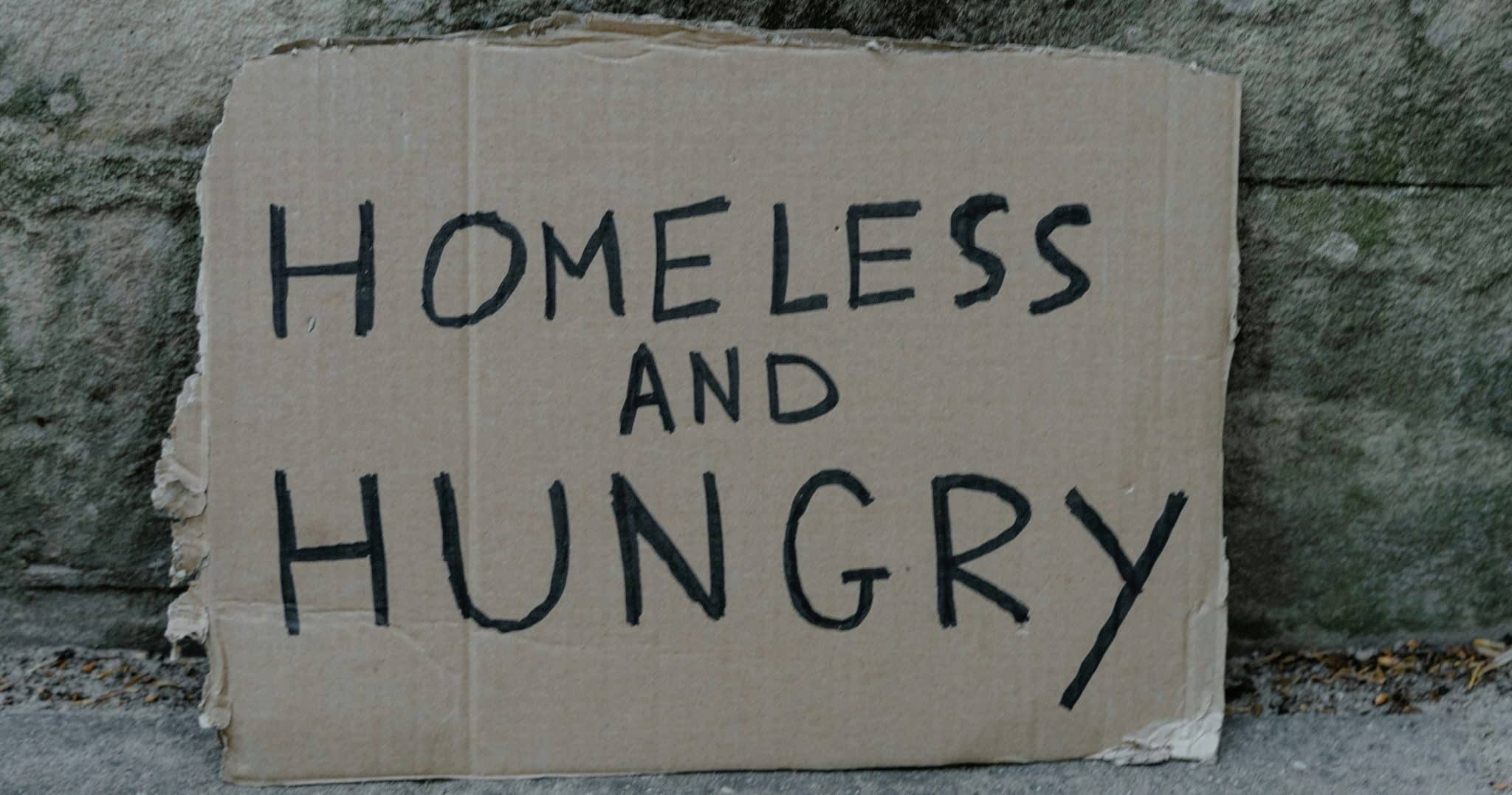(Dis)connected, idealistic, anxious: New survey helps decode the millennials in your life
by Karen Tan // October 26, 2019, 5:39 pm

The Counsellor notes that there is actually no safe place for youths to unload emotionally. Photo by chuttersnap on Unsplash.
“If the whole world depends on today’s youth, I cannot see the world lasting another 100 years.” Sounds like something a baby boomer or someone from Gen X might say?
Scratch that thought.
It was Socrates who said that. And the Greek philosopher lived in the 3rd century BC.
The study surveyed more than 15,000 young people across 25 countries.
It’s apparently not new for one generation to brush off another, but it’s probably due more to a lack of understanding rather than any real malice.
New findings from a global study on millennials can now help you better decipher the young adults that you live or work with so that you can, perhaps, be a more empathetic support.
A collaboration between Barna and World Vision, The Connected Generation project surveyed more than 15,000 young people aged between 18 and 35 years old across 25 countries and nine languages.
In Singapore, online interviews were conducted with 500 respondents who were quota-sampled for representation.
Turning away from faith
They are digital natives, yet they lack relational connections. They live in a time of relative peace and social mobility yet most of them are not optimistic or empowered about their future.
These broad findings show how disconnected and anxious the connected generation actually is. Two in five millennials (41%) in Singapore admit that they are anxious about important decisions, while a similar proportion (39%) is afraid to fail.
Despite the anxiety, the young adults are not turning to faith; they’re turning away instead. When asked to name the religion they grew up in and the religion they adhere to today, the results were telling.
“It means allowing them to be in church when there are exams the next day.”
There was a drop across all the major religions – except for Islam (which was expected) – and also for agnosticism and atheism (which was slightly surprising). The only category that made gains was “not religious”, which went from 14% to 18%.
And this is a sober reminder for Christian parents – will their children follow in their faith?
“The strongest advice I can give to parents or caregivers to children under 18 is let your kid own their faith. Let them understand that the faith is theirs and not their parents’,” said Pastor Ian Lee, who is in charge of the youth and young adults at Covenant Community Methodist Church.
“This means encouraging them to come to church on their own. It means setting time aside for them to be with the youth group. It means allowing them to be in church when there are exams the next day.”
Talk is cheap
Generally, millennials have very little patience for people they deem as insincere. The No. 1 reason that makes them doubt the spiritual is the hypocrisy of religious people – the top barrier for three in 10 Singapore youngsters.
“Honesty, authenticity and earnestness go a very long way,” said Ps Ian, 34. “As soon as someone in my generation gets a whiff of anything that’s a façade, or any amount of hypocrisy, it’ll always be seen very, very badly.”
“Honesty, authenticity and earnestness go a very long way.”
Along with this need for authenticity is a sense that action is more important than just mere talk. The study found that this connected generation feels the impact of broad, global trends more than they feel loved and supported by others close to them.
When asked to come up with their fears about the world’s future – and what they think they can help solve – millennials in Singapore named global climate change (47%), corruption (40%), pollution (34%), natural disasters (32%) and wealth inequality (32%).
“They are looking to make an impact in this world, leave behind a legacy and cause a positive dent in the society,” said Pastor Joey Asher Tan, 36, who is in charge of the youth and young adults at Grace Assembly of God.
Fight injustice
To better understand millennials who are/were Christians, Barna came up with four categories:
- Resilient disciples (22%): Identify as Christian, regularly attend a church, deeply engage with their faith beyond worship services
- Habitual churchgoers (38%): Identify as Christian, regularly attend a church
- Nomads (21%): Identify as Christian but not involved in a church
- Prodigals (19%): Grew up Christian but no longer affiliated
The good news is: Singapore has a much higher proportion of Resilient Disciples than in Asia (13%) and the world (13%). Yet should we also be concerned that the number is not higher? Resilient Disciples are the ones who are not content with being just Sunday Christians and they want to put faith into action.
Singapore has a much higher proportion of Resilient Disciples than the rest of the world.
Social justice issues are hot topics for millennials across Singapore, but it’s also the biggest item that Christian youths feel are missing in church. About a third (30%) of Resilient Disciples and a quarter (23%) of Habitual Churchgoers say that their churches are lacking opportunities to fight injustice and oppression.
“Millennials are passionate about social justice, partly because the generations before them cared more about building the church than about rebuilding the society,” said Ps Joey. “Millennials are also passionate about world missions, especially to more exotic places like the Middle East, Central Asia and the Far East. This is caused by their desire for exploration and discovery – exotic travel – and also because reaching ASEAN has been the focus of the generation before them.”
Faith in the real world
Across the board, we see a disconnect between faith and the real world. At least two thirds of Christian youth – as high as 80% for Habitual Churchgoers – felt that “faith is more relevant in the hard times of life”, with the implication that faith is not relevant in the everyday humdrum.
Less than a quarter (23%) of Resilient Disciples said their church has helped them better live out their faith in the workplace. The number drops to 11% for Habitual Churchgoers. Given that we spend at least eight hours a day at work every day, it’s a concern that the millennials feel the church is not preparing them to grow as a disciple and witness for Christ at work.
Most millennials feel the church is not helping them to better live out their faith at work.
These two forms of disconnect are symptoms of modern urban living, said Ng Zhiwen, who serves in missions research and missions mobilization at Singapore Centre for Global Mission. We may make many acquaintances but there’s little depth.
“Our lives get compartmentalised into distinct components – family, work, vacation, ‘church’ online – when it should have integrity, that is, all held together,” he wrote in a Facebook post.
“Life in a secular society is also such that we are pressured, or sometimes unthinkingly allow ourselves, to ‘leave our faith at the door’ when we go to work, interact with non-believers or engage in public discourse.
“The Christian life was never meant to be so.”
Give them space
Perhaps the key to help millennials cope with the challenges above lies in two of the top things missing in church – opportunities to connect with older generations and regularly meeting with a mentor.
Almost three quarters (70%) of Resilient Disciples strongly agree that there is someone in their life who encourages them to grow spiritually, compared to 57% for Habitual Churchgoers.
“The people my generation look up to most are the ones who are willing to sit and listen to empathise with what we’re going through, instead of saying, ‘Oh, this is how you should have done it’ or ‘Oh, this is how I would have done it’,” explained Ps Ian.
“We look up to the ones who are willing to sit and listen to empathise with what we’re going through.”
Likewise, for those who are supervising young adults in their workplace, it’d be helpful to give them room to explore and fail.
Choe Peng Sum, chief executive of Pan Pacific Hotels Group, spent more than 20 years in the hospitality industry and have seen his fair share of millennials.
“Their risk appetites are very different from the older generation. Maybe we’ve seen many recessions and have become more fearful,” he said. “For them, they’d say, ‘Fail, fail lor! We must try lah!’
“You need to give them space and the opportunity to make mistakes. The moment we try to tie them up, that’s it.”
Ps Joey, who pastors over a thousand young people, is confident that the connected generation can make a lasting impact in the world, even if they may get too caught up with debates at the moment.
“The problem with their version of Christianity is that they possess so much knowledge but so little truth – true faith is not discussing what you know but demonstrating how you live it out,” he noted.
“Millennials – and every Christian actually – must realise that the Christian faith is declared most effectively by a transformed life, and not just doing something transformative with your lives. I firmly believe that millennials have the potential to change the world for Jesus, and that change is powerfully credible when it begins first in themselves.”
We are an independent, non-profit organisation that relies on the generosity of our readers, such as yourself, to continue serving the kingdom. Every dollar donated goes directly back into our editorial coverage.
Would you consider partnering with us in our kingdom work by supporting us financially, either as a one-off donation, or a recurring pledge?
Support Salt&Light



